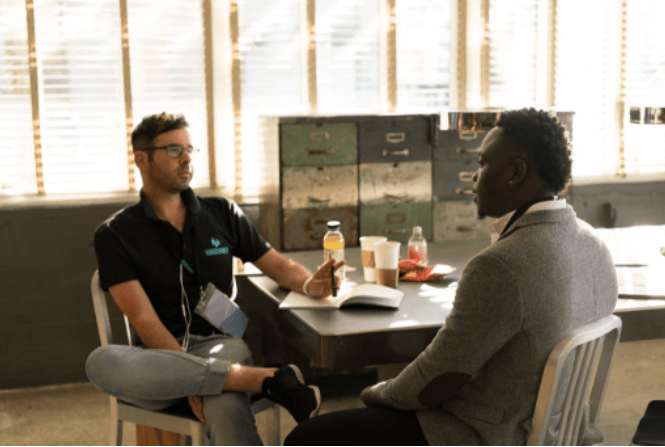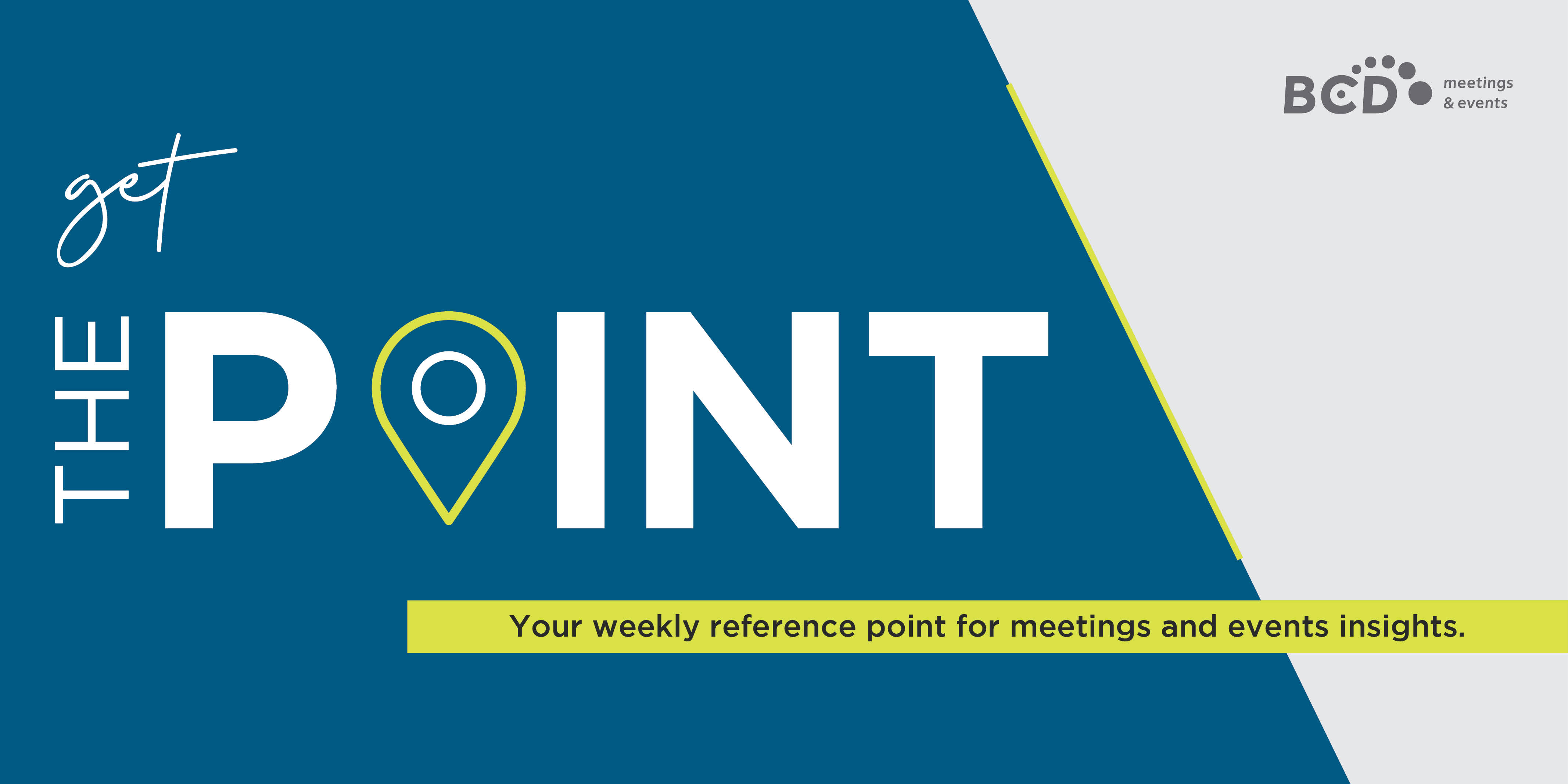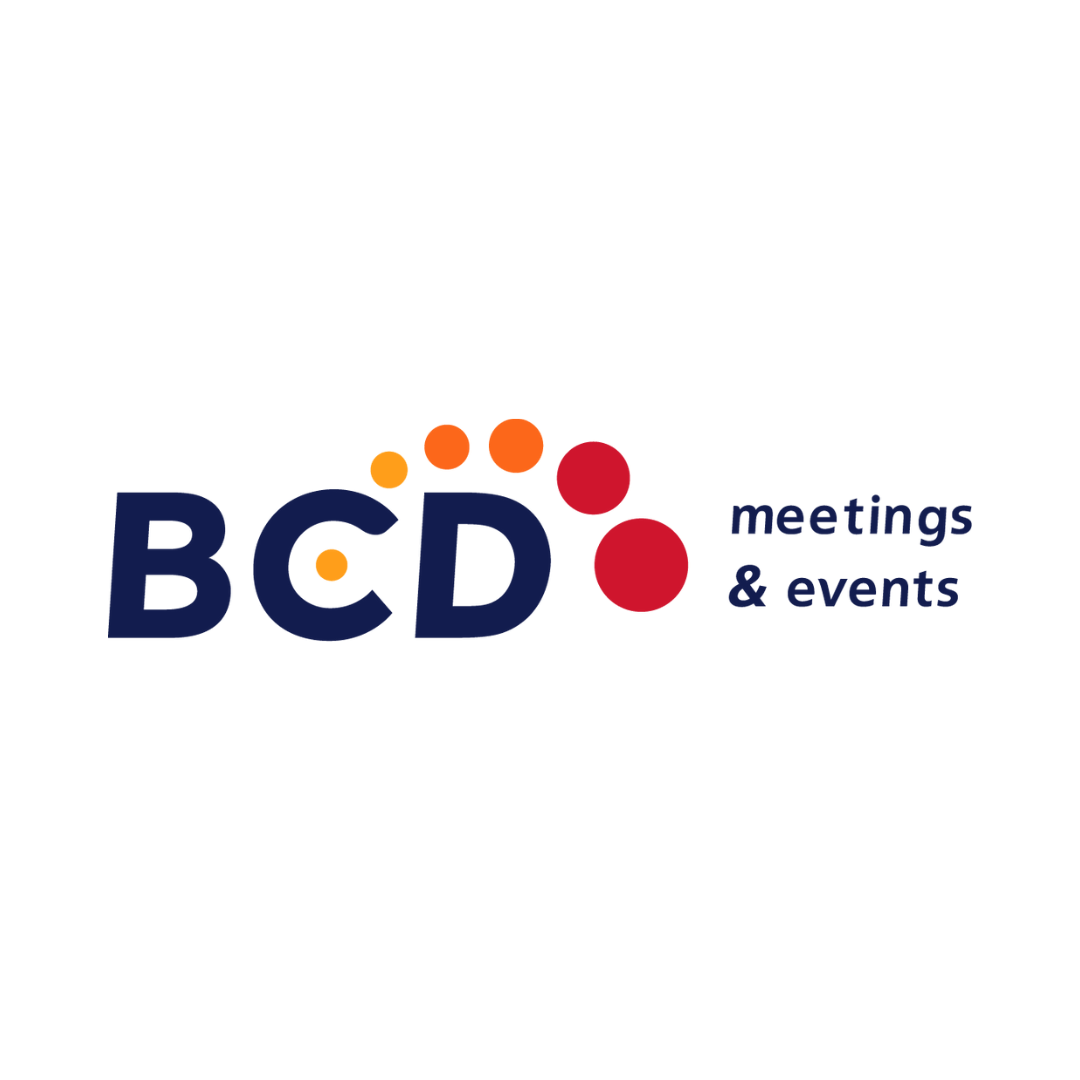For many of us within the meetings and events industry, our passion for bringing people together and building human connection is what drives us. Days are spent creating moments that spark collaboration with co-workers, clients and suppliers to craft perfect experiences. This has always meant site visits, brainstorming sessions and the occasional happy hour – all in person. However, the way we work, interact and connect has drastically changed since 2020. Although having new ways to communicate has its benefits, the last two years has affected us all in different ways, with many feeling the impact of loneliness created through lockdowns and social distancing.
This year, the Stress Management Society’s theme for their 2022 activity around mental health awareness is “Community”. Chosen because of the loneliness and isolation faced by many through the pandemic, it recognizes the impact this had on people’s wellbeing. Disrupted social lives, separation from family, the cancellation of large gatherings, travel restrictions and working from home have all kept us in one place for long periods of time. It all takes its toll.
Although restrictions have lifted, life has changed. Working from home, less interactions in person and the move to more online activities can leave us feeling disconnected from others and we are, after all, social beings. Research shows that people who feel part of a community, by being accepted, supported and connected to others, are happier and healthier. Having that support and a sense of community at work can make a big difference to our wellbeing. Feeling a valued part of a team, having colleagues you can laugh with and chat to (not just about work), makes all the difference.
Our people are our greatest asset and we value a culture of mutual support. We spoke to few of our colleagues in the UK who recently completed a mental health first aid training course about their experiences. Below are insights from Emma Willis, Event Manager; Sarah Joyce; Project Director; Heather Thompson; Customer Experience Manager, Alex Wright; Solutions Manager; Anna Holloway, Account Director and Cheryl Dawson, HR Business Partner.
Mental health first aid training for meetings and events professionals
What inspired you to take part in this course?
Emma: Mental health at work is something that I am passionate about, I think it is vital that colleagues can have open and honest conversations with their peers and managers if they are suffering. I have had my own challenges over the years and wanted to gain additional knowledge and techniques to support colleagues if needed.
Sarah: Mental health is a taboo subject, and its importance cannot be overstressed. There is too much stigma associated with mental health and I was therefore keen to partake in the course to enable me to be better equipped with the skills and knowledge required to help those around me and who might need support to maintain and improve their mental wellbeing.
Heather: I want people to feel comfortable coming to me to talk about their mental health and the course content outlined key topics that I felt would really help me to support others.
Alex: Having been on my own mental health journey over the last few years, I was keen to gain more in-depth knowledge and look at ways I could help others in tackling some of the stigma around mental health illness. I have previously shared my own experiences with my team in some of our departmental updates. When I had this opportunity, I felt I would be a great fit and I could make a positive impact.
What was your biggest take-away from the course?
Emma: My biggest takeaway is that you never know what your colleagues may be going through and to always approach everyone with kindness and respect. It’s also empowered me to feel able to approach or support a colleague who may be struggling. We also had important discussions around the stigmas that still surround mental health and I think that having taken this course, I can support in breaking down and challenging this to encourage colleagues to talk if they are struggling.
Anna: Understanding the language you use and how it can positively and negatively impact others, everyone has different level of stress and sometimes outsiders are not aware. I also understand more about the difference between empathy and sympathy.
Cheryl: The biggest take away from the course that I took is that poor mental health can affect everyone no matter how strong we think we are.
How has what you learned impacted the way you interact with colleagues and clients?
Emma: It has encouraged me to be more patient with everyone I interact with on a day-to-day basis, whether that’s colleagues or clients. The last few years have been extremely challenging and everyone has gone through hardships, which will inevitably have an impact on mental health. I’m trying to ensure that I approach situations calmly and with empathy, and if I do sense someone is struggling to encourage them to discuss further if appropriate.
Anna: I pay more attention to the language I use and encourage people to switch off and take breaks. I find that I am reaching out more to people and encourage conversation. You aren’t there to give advice but to give access to support services & information.
Sarah: The course was very insightful in highlighting how important your own and other’s mental health wellbeing is. The examples of how to spot potential problems in one’s self and others including clients and colleagues was invaluable. I feel more confident in certain situations because I know how to communicate and really understand how to empathise with those around me. I have made a conscious effort in all my team meetings to highlight the importance of mental health wellbeing and encourage all my team members to take time for themselves each and every day.
Heather: I think the main take away from me was building on my listening skills and I hope that I’ll be able to support others by listening in a non-judgmental way. I think I’ll also have more of an awareness on signs to look out for so I can pick up with colleagues and let them know I’m here to support them.
Alex: It’s given me to tools and practical experience to help me support and signpost colleagues and friends that may need help at work and in everyday life. I will be sharing some key takeaways with our leadership and management team, in an effort help spot early warning signs of mental illness and crisis amongst our teams. I also plan to try and foster an open and non-judgmental culture around mental health in our division, which I hope will cascade down to other colleagues, family and friends.
Tips for staying grounded during changing times
Maintain a healthy diet. Nutrition can play a big role in our mood and eating healthily can give you a boost by providing the brain with the nutrients it needs to function efficiently. When we’re stressed it’s very easy for the healthy eating habits to go out of the window. Planning ahead and prepping your weekly meals is a great place to start.
Meet up with your colleagues. Still remote working? Heading back into the office? Make it a point to make plans with co-workers in the area to socialize, go out for that work lunch or after work drinks. After so much time communicating through our screens it can be hard to get back out there. If you’re feeling apprehensive, start small and build up to the group situations.
Get out in nature. This was a constant message throughout the pandemic, and nothing has changed in this department. Taking time out for yourself without distractions is a great way to alleviate stress and also boost those vitamin D levels which can also help improve mood. Go for a walk, do your workout outside or simply take some time to sit in the garden with a book.
Prioritize quality sleep. Yes, you may be getting up that hour earlier to get into the office these days or staying out to socialize after work, but maintaining your sleep routine is crucial to good mental health. Getting 7-9 hours of sleep a night and having consistent sleep and wake times enable us to deal with and relieve stress much more efficiently.
Lastly, don’t forget how far you’ve come after everything that you’ve been through in the last two years of unusual and challenging circumstances. Be easy on yourself and take one day at a time!
Originally published May 9, 2022 9:37:40 AM
Last updated on Dec 23, 2022 9:57:17 AM



